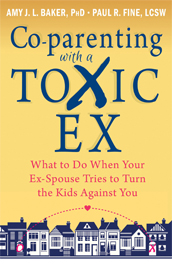How To Guide: Divorce With Children Involved

- This blog contains affiliate links, which we may receive a commission for purchases. The decision is yours, whether or not you decide to buy.
Going through a divorce can be hard at the best of times, but it can be even harder when there are children involved. We have teamed up with Hawkins Family Law, who are specialists in divorce, to find out the best ways to get through this difficult period.
What happens in a divorce?
A divorce is something that legally ends your marriage. There are numerous steps to getting a divorce so we have outlined them below.
The divorce petition
The divorce petition is a form the petitioner sends to the respondent. You will need to fill it out to determine the reason why your marriage has broken down. There is a choice of five different reasons for divorce: adultery, unreasonable behaviour, two years separation with the consent of the spouse, five years separation without consent of the spouse, and desertion.
The respondent replies to the divorce petition
Once the respondent responds to the divorce petition by completing the Acknowledgement of Service form, it is sent to the court and a copy goes to the petitioner or their solicitor.
Application for Decree Nisi can be made
This is where the petitioner completes a Statement of Truth and confirms that the reasons for divorce are true. Decree Nisi pronounced by court At this stage, the court will check that both parties involved are entitled to divorce where the judge will approve the petition. Also at this point, it will be confirmed who will be paying for the divorce. The petitioner, respondent or if it will be an equal split.
Decree Absolute pronounced by court
This is the final stage of divorce and can be applied for at least six weeks after the date of Decree Nisi. Top tip: It’s best to wait until all financial matters are sorted before you apply for this as it can affect certain assets.
The overall divorce process can take around 4-6 months as there are many contributing factors to resolve in the process. Your divorce solicitors will let you know what you need to do and when.
Child arrangements after separation
Generally, mothers have automatic parental responsibility for their children from the moment they are born. Fathers will have parental responsibility also if they were married to the mother or they are on the birth certificate. In this case, you will both have joint parental responsibilities.
Once separation has happened, you can decide amicably who the child will stay with on a more regular basis and how often the child will visit the other parent. It is also good to discuss other forms of communication such as phone calls.
If you cannot come to an agreement then it is best you speak to a professional for them to decide. You can speak to a mediator which allows you to both express what you want, and the mediator will take into consideration both wishes and find a compromise.
If this does not work, then you will need to go to court to come to an arrangement that you will both need to stick to.
Finalising custody agreements
Finalising custody agreements is really important for your children and for you. It allows every party involved to know where they stand and what is going on, allowing you to plan effectively.
If you can agree on the future of where your child will live, how often the other parent will see the child, where they will go to school and how much maintenance is paid, then that is a great plan to stick to. If you are concerned that part of this agreement might change later on, then making it legally binding might be something to consider.
If you want to settle the outcome without going to court then mediation is the option you need to take. This is not legally binding but can be sent to a solicitor to read over and later used in court if necessary.
How best to tell your children
Telling your children you have separated and going to live in separate locations going forward can be difficult, and it's hard to know how your children will react. You should only tell your children once you are 100% certain.
If possible, it is best to break the news together, let the children ask any questions and answer them together avoiding pointing blame. Let them take time to process the news and reassure them that they can talk to you about it whenever they like.
How to help your children cope
Divorce can be quite upsetting for your children so it’s important that it is managed in the most amicable way possible. Separating can incite negative feelings between parents, but it is important to remember that children pick up on this and it can make them feel sad or confused.
Here are some tips on how you can help your children cope with your divorce.
- Be honest with them when talking to them about it whilst taking into consideration the child's age
- Remind the children you both still love them
- Avoid blaming each other and sharing any negative thoughts/feelings when your children are present
- It is important to keep routines as normal as possible - school, meal times, bed times etc. Keep both parents involved in the children’s lives Remind them they are able to talk to you about their feelings and that it’s ok for them to feel sad
- Listen to your child more often during this difficult time as it can help them open up to you
We hope this helps you and your children get through the divorce process in the best way possible. If you are unsure what to do at any stage of your divorce, then always consult a solicitor.
Hawkins Family Law is a very professional team that delivers high-class services with offices in Milton Keynes, Watford, and Bicester. Specialising in all thing’s family law including financial matters, divorce and ToLATA proceedings.
You may also like
Books
Buy now from Amazon
Podcast
If you’re looking for some straight-up, positive advice on topics that affect your daily life, then check out The Sue Atkins Parenting Show. Each week Sue bare will discuss every possible aspect of your parenting challenges, from weaning to whining, boundaries round technology to stroppy teens. You’ll get practical tips, techniques and advice that really work- and it’s all totally free.
Articles
- 5 Ways To Parent With A Narcissist
- How To Be Great Parents Through Separation And Beyond
- Divorce From A Child's Perspective
Videos
Practical advice and tips from professionals on what to do with issues and challenges around divorce from parenting to finance.
Events
Practical tips & advice designed to help people going through divorce, whether online or in person.
Useful links
Here's a selection of organistaioins from parenting to finance to help you with your divorce.
Parenting professionals
Related Posts
-

Divorce And Friendships: Navigating Shared Social Circles
-

Managing Divorce Post-Christmas: Unveiling The January Surge In Separations
-

Thriving Through The Holidays: A Guide To Resilience And Self-Discovery After Christmas, Separation, And Divorce
-

5 Rights Of A Child After Divorce
-

Six Ways A Divorce Coach Can Transform Your Divorce Journey

.jpg)

.jpg)



.jpg)

